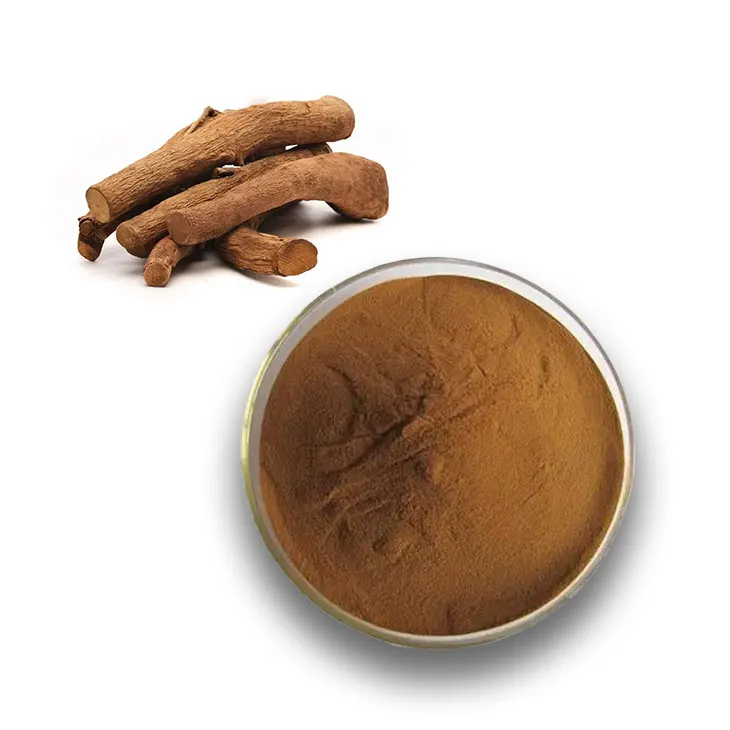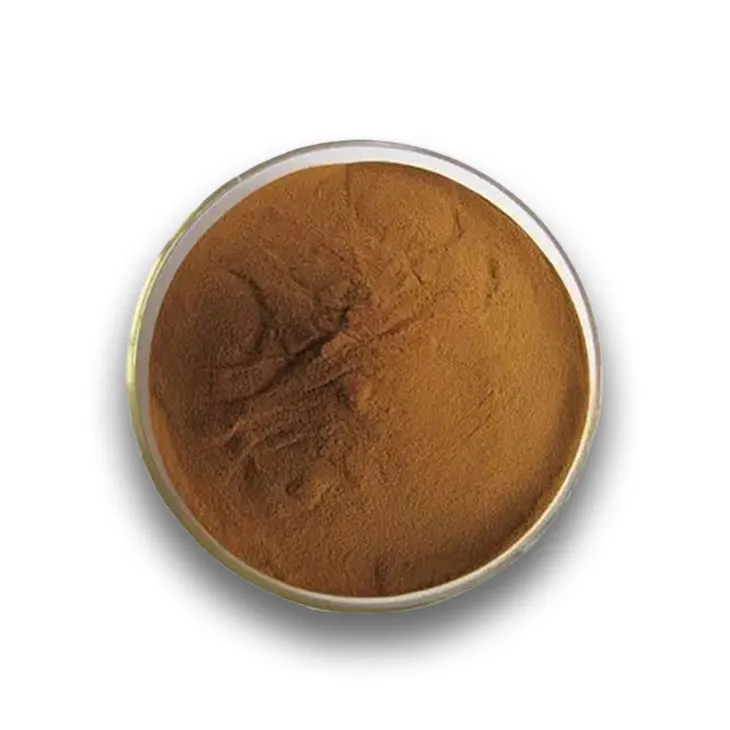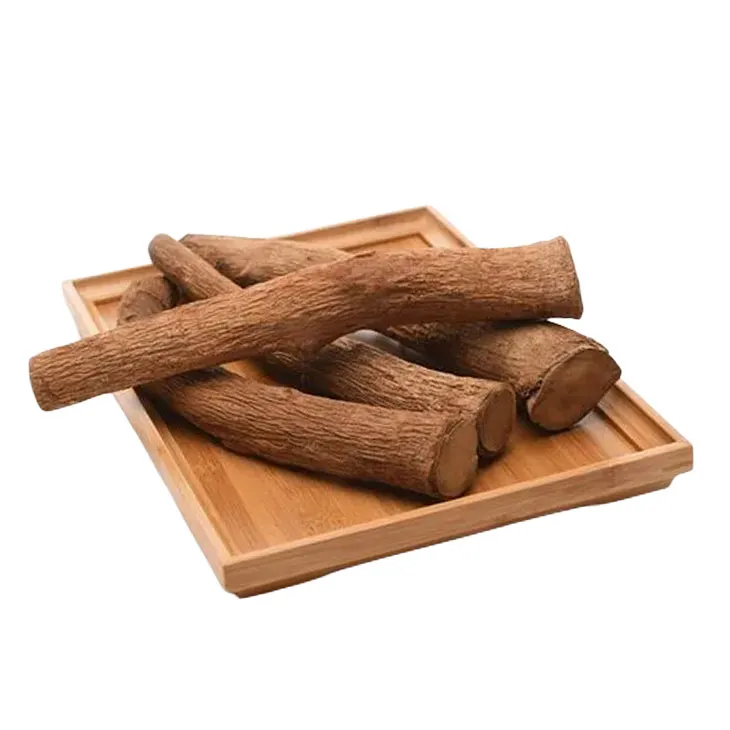- 0086-571-85302990
- sales@greenskybio.com
Tongkat Ali extract manufacturer.
2024-12-01

Introduction to Tongkat Ali and the Industry
Tongkat Ali Extract manufacturers are at the forefront of a growing industry centered around this potent herbal extract. Tongkat Ali, native to Southeast Asia, has a long history of use in traditional medicine. This plant has gained significant attention in recent years due to its various potential health benefits, which has led to an increase in the demand for its extract. As a result, the role of manufacturers in this industry has become crucial.

Understanding the Plant: The Foundation of Manufacturing
The manufacturing process begins with a deep understanding of the plant itself. Manufacturers must be well - versed in the different varieties of Tongkat Ali and their unique characteristics. There are different species and subspecies of Tongkat Ali, and each may have slightly different chemical compositions and properties. For example, some varieties may have a higher concentration of active compounds, while others may be more suitable for certain extraction methods.
Importance of Sustainable Harvesting
They then take on the task of sustainable harvesting, which is not only crucial for environmental protection but also for ensuring a continuous supply of raw materials. Sustainable harvesting involves practices such as not over - harvesting from a particular area, allowing the plant to regenerate, and following ethical guidelines. If manufacturers do not practice sustainable harvesting, it can lead to the depletion of Tongkat Ali in the wild, which can have negative impacts on the ecosystem and the long - term viability of the industry.

Extraction Methods: Options and Considerations
When it comes to extraction, manufacturers can choose from a variety of methods such as solvent extraction or supercritical fluid extraction.
Solvent Extraction
Solvent extraction is a commonly used method. In this process, a solvent is used to dissolve the active compounds from the Tongkat Ali plant material. The choice of solvent is crucial as it can affect the quality and purity of the final extract. Some solvents may be more effective at extracting certain compounds, but they may also leave behind residues that need to be removed carefully. For example, ethanol is a popular solvent as it is relatively safe and can extract a wide range of compounds. However, the extraction process needs to be carefully controlled to ensure that the ethanol is completely removed from the final product.
Supercritical Fluid Extraction
Supercritical fluid extraction is another option. This method uses a supercritical fluid, such as carbon dioxide, as the extracting agent. Supercritical fluids have unique properties that make them very effective for extraction. They can have a high solubility for the target compounds, and they can be easily removed from the extract, leaving behind a very pure product. However, this method requires more specialized equipment and is often more expensive than solvent extraction. Each method has its own advantages and disadvantages in terms of efficiency, cost, and the quality of the final extract.
Factors Affecting the Extraction Process
Manufacturers also need to consider factors like temperature, pressure, and solvent type to optimize the extraction process. For example, in solvent extraction, the temperature can affect the rate of extraction and the solubility of the compounds. In supercritical fluid extraction, the pressure and temperature need to be precisely controlled to maintain the supercritical state of the fluid. By carefully adjusting these factors, manufacturers can improve the yield and quality of the Tongkat Ali extract.

Market Positioning: Targeting Different Customer Segments
In terms of market positioning, Tongkat Ali extract manufacturers need to target different customer segments.
The Nutraceutical Market
There are those in the nutraceutical market who are interested in its potential health - promoting properties. Nutraceutical products containing Tongkat Ali extract are often marketed as dietary supplements. These products are targeted at consumers who are looking for natural ways to improve their health, such as enhancing energy levels, improving sexual function, or boosting the immune system. Manufacturers need to understand the needs and preferences of this market segment, and they need to be able to provide products that meet the quality and safety standards expected in the nutraceutical industry.
The Pharmaceutical Industry
Then there are also the pharmaceutical companies that may be exploring the use of Tongkat Ali extract for drug development. The pharmaceutical industry has a more rigorous set of requirements in terms of research, development, and regulatory compliance. Manufacturers may need to collaborate with pharmaceutical companies to conduct clinical trials and research on the potential medical applications of Tongkat Ali extract. This can involve providing high - quality, standardized extracts for research purposes and working with the pharmaceutical companies to navigate the complex regulatory environment.
Product Transparency: Building Trust with Consumers and Partners
Moreover, manufacturers are constantly striving to improve product transparency. They provide detailed information about the extraction process, the source of the raw materials, and the quality control measures implemented.
Extraction Process Details
By providing information about the extraction process, manufacturers can help consumers and business partners understand how the Tongkat Ali extract is produced. This includes details such as the type of extraction method used, the solvents or agents involved, and the steps taken to purify the extract. For example, if a manufacturer uses supercritical fluid extraction, they can explain how this method results in a high - quality, pure extract.
Source of Raw Materials
Information about the source of the raw materials is also important. Manufacturers can specify whether the Tongkat Ali is sourced from wild - harvested plants or from cultivated sources. If it is wild - harvested, they can provide details about the sustainable harvesting practices in place. For cultivated sources, they can talk about the quality control measures during cultivation, such as the use of organic fertilizers or pest control methods.
Quality Control Measures
Quality control measures are crucial in ensuring the safety and effectiveness of the Tongkat Ali extract. Manufacturers can detail the tests they conduct on the raw materials, during the extraction process, and on the final product. These tests may include chemical analysis to determine the concentration of active compounds, microbiological testing to check for contaminants, and stability testing to ensure that the product remains effective over time. This helps build trust with consumers and business partners alike.
International Cooperation: Expanding Global Reach
Another aspect is international cooperation. Many Tongkat Ali extract manufacturers are looking to expand their reach globally.
Partnerships with Overseas Distributors
They may engage in partnerships with overseas distributors. These partnerships can help manufacturers get their products into international markets more easily. Overseas distributors often have an established network of retailers and customers in their respective regions, which can provide manufacturers with access to a wider customer base. For example, a manufacturer in Southeast Asia may partner with a distributor in Europe to introduce their Tongkat Ali extract products to the European market.
Participation in International Trade Shows
Manufacturers may also participate in international trade shows to showcase their products and capabilities. These trade shows bring together industry players from around the world, providing an opportunity for manufacturers to network, learn about the latest trends and technologies, and promote their products. At trade shows, manufacturers can display their Tongkat Ali extract products, demonstrate their extraction processes, and share information about their quality control measures. This can help them attract potential customers, partners, and investors from different countries.
FAQ:
What are the key factors in the manufacturing process of Tongkat Ali Extract?
The key factors include a deep understanding of the Tongkat Ali plant, especially different varieties and their characteristics. Sustainable harvesting is crucial for environmental protection and a continuous raw material supply. During extraction, factors like choosing between methods such as solvent extraction or supercritical fluid extraction, and considering temperature, pressure, and solvent type to optimize the process are important.
How do Tongkat Ali Extract manufacturers target different customer segments?
Manufacturers target different customer segments by recognizing the diverse needs. For the nutraceutical market, they focus on its potential health - promoting properties. For pharmaceutical companies, they may offer their extract for drug development exploration.
Why is product transparency important for Tongkat Ali extract manufacturers?
Product transparency is important because it helps build trust. By providing details about the extraction process, raw material sources, and quality control measures, manufacturers can gain the confidence of both consumers and business partners.
What role does international cooperation play for Tongkat Ali extract manufacturers?
International cooperation allows manufacturers to expand globally. They can engage in partnerships with overseas distributors or participate in international trade shows to showcase their products and capabilities.
What are the advantages and disadvantages of different extraction methods for Tongkat Ali extract?
Different extraction methods, such as solvent extraction and supercritical fluid extraction, have their own pros and cons in terms of efficiency, cost, and the quality of the final extract. Solvent extraction may be cost - effective but could have potential solvent residue issues. Supercritical fluid extraction can produce high - quality extract with less residue but may be more expensive and require more complex equipment.
Related literature
- The Bioactivity and Therapeutic Potential of Tongkat Ali Extract"
- "Sustainable Harvesting of Tongkat Ali for Extract Manufacturing"
- "Quality Control in Tongkat Ali Extract Production"
- ▶ Hesperidin
- ▶ Citrus Bioflavonoids
- ▶ Plant Extract
- ▶ lycopene
- ▶ Diosmin
- ▶ Grape seed extract
- ▶ Sea buckthorn Juice Powder
- ▶ Fruit Juice Powder
- ▶ Hops Extract
- ▶ Artichoke Extract
- ▶ Mushroom extract
- ▶ Astaxanthin
- ▶ Green Tea Extract
- ▶ Curcumin
- ▶ Horse Chestnut Extract
- ▶ Other Product
- ▶ Boswellia Serrata Extract
- ▶ Resveratrol
- ▶ Marigold Extract
- ▶ Grape Leaf Extract
- ▶ New Product
- ▶ Aminolevulinic acid
- ▶ Cranberry Extract
- ▶ Red Yeast Rice
- ▶ Red Wine Extract
-
Fenugreek Extract Powder
2024-12-01
-
Lemon Balm Extract
2024-12-01
-
Nettle Root Extract
2024-12-01
-
White Willow Bark Extract
2024-12-01
-
Beetroot Powder
2024-12-01
-
Acai Berry Extract
2024-12-01
-
Bayberry Extract
2024-12-01
-
Green Tea Extract
2024-12-01
-
Genistein
2024-12-01
-
Black Rice Extract
2024-12-01





















